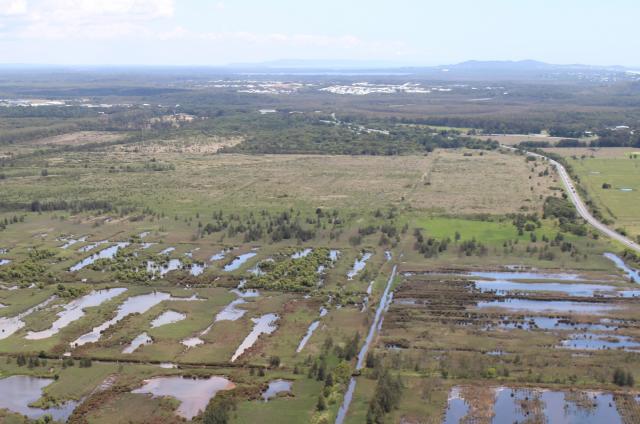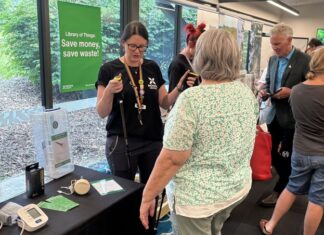A large former cane land site in the Sunshine Coast’s Blue Heart will be restored to natural wetlands, providing valuable habitat for wildlife and contributing to a healthier Maroochy River for everyone to enjoy.
Sunshine Coast Council has secured 120ha of land at Yandina Coolum Road, Coolum, with plans to introduce tidal waters to aid the natural transition to wetland habitat, helping improve the quality of water flowing into the river from the site and creating a place for the community to come and connect with nature.
The site adjoins the Coolum Creek Environment Reserve, which provides fish breeding areas and habitat for threatened species such as the Water Mouse.
Division 9 and environment portfolio Councillor Maria Suarez said the purchase secured one of the largest and most significant single land holdings in the Blue Heart project area, bringing publicly owned land within this major green space to almost 1700ha.
“This former cane land will be transitioned back to a natural wetland state,” Cr Suarez said.
“This is already beginning to happen on other adjacent lands due to cane farming ceasing many years ago and tidal gates no longer functioning as designed.
“This is another example of what’s exciting about the Blue Heart – benefits for biodiversity, creating nature-based recreation opportunities, and increasing opportunities for council’s ongoing Blue Carbon investigations and trials.”
Blue Carbon farming involves measuring and earning credits for carbon stored in healthy marine and coastal ecosystems.
The $6 million land purchase was secured through the SEQ City Deal, a long-term partnership between the Australian Government, Queensland Government and Council of Mayors (SEQ) that allocated $35.3 million to the Blue Heart initiative.
The SEQ City Deal aims to improve liveability, jobs creation, transport and communities in south-east Queensland.
Blue Heart Sunshine Coast is an innovative partnership-based project committed to sustainable and adaptive floodplain management in the Maroochy River catchment, with the project area covering more than 5000ha across publicly and privately held land.
Partners include council, the Queensland government’s Department of Environment and Science and Unitywater.
Cr Suarez said the majority of the Blue Heart was privately owned and the project sought to help landholders understand and adapt to changes in the landscape expected with sea level rise.
“To help our landholders in the Blue Heart manage the impacts of climate change, we’re proactively trialling new opportunities such as Blue Carbon farming, which could provide alternative incomes for landholders as some traditional agricultural industries become less viable.”








